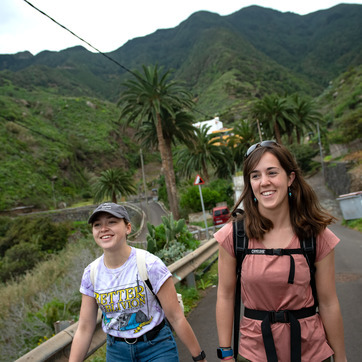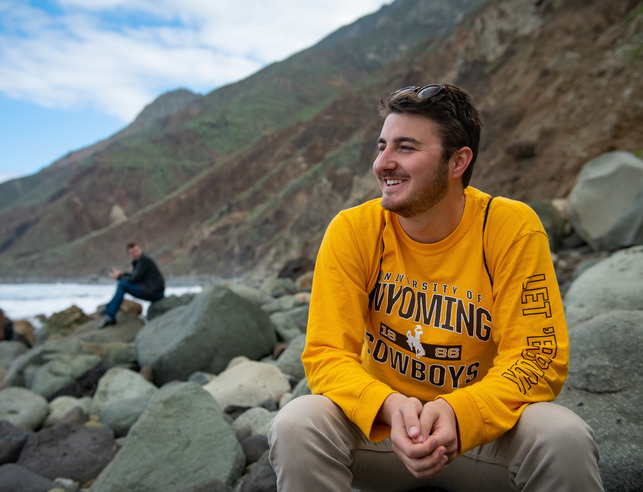First Time Traveler Considerations
Is this really for ME?
If you feel uncomfortable or intimidated at the idea of traveling abroad because it is so new to you, or if you are concerned that you “won’t know what to do” on study abroad, here are some things to remember.
You have already successfully met similar challenges.
There are a number of parallels between leaving high school for college and going on study abroad. In both situations, there is an adjustment period that can be challenging. If you are reading this as a UW student, then you have successfully made (or are making) that transition. Also, just as getting used to college life turns out to be enormously rewarding, so does getting used to living abroad. After getting through the period of adjustment in both situations, most people say that they are very happy to have gone to college and/or to have lived abroad, and that their lives are much better for having achieved these things.
How important is previous travel experience?
Worried about not having much (or any) travel experience? Not having traveled does not necessarily mean that you will have greater difficulty studying abroad than more experienced participants. A first-time traveler who is organized, open-minded, and flexible often has a better time and learns more than an unprepared or irresponsible or inflexible person, regardless of their prior experiences.
Study abroad and your family
Some students tell us that their families think that study abroad is unjustifiably expensive, that it is a vacation that will delay graduation, that it will make their sons or daughters forget their roots, or that it is too dangerous. We would like your family to know that we understand these concerns and encourage them to consider the following:
- There is a wide range in the costs of the 400 + programs that UW offers. While some are expensive, many are very close in price to the cost of tuition and fees at UW. You can find a detailed explanation of costs and financial aid.
- Study abroad is a good investment, because having some kind of international experience is not really an “extra” any more. Just as it has become more and more important to have a college degree to get a satisfying job, employers are more and more frequently requiring their new hires to have experience in relating to people from other cultures, to be familiar with other languages, and to be prepared to travel in their work.
- Students take classes and earn credit while abroad, so as long as the student does reasonable planning before the program, going abroad should not delay progress toward graduation. Our Academics page can provide more information on courses and credits abroad.
- While study abroad does change people in some ways, the changes are usually quite positive. Many parents report that their sons and daughters come home more mature and with greater self-sufficiency than they were before going abroad.
UW Education Abroad is very serious about student safety and does not send students to places about which we have serious concerns, view Health & Safety page for more information.
Many parents visit their sons or daughters who are on study abroad (either during a break or just after the program has ended). They report that they find it very enjoyable to see a new place and also to see how much their son or daughter has learned from their experience.
A few common questions and answers

An official identity document issued by the government of your home country. Having a passport, or being in the application process for one, is a condition for final acceptance to UW Education Abroad programs.
Visas are official documents issued by governments granting permission for visitors to enter a country. You may receive visa application information from your education abroad advisor, partner program manager or host institution; however, it is always your responsibility to acquire the visa and to be aware of policies and deadlines that may affect the visa process. If you do not know or are unsure if you need a visa, contact your Education Abroad Advisor.
Staff in the Education Abroad Office would be happy to talk to you about this. Many UW students use on-line sources or STA Travel.
Most people use ATMs to get local currency while abroad. Go to the ATM and enter the amount of local currency (Euros, British pounds, Yen, etc.) that you want. Your bank at home converts that amount into US dollars and withdraws the converted amount (in dollars) from your account.
UW students going abroad are covered by a required and affordable health insurance policy.
This is very rare; in fact, most students say they wish their programs were longer. Our support continues while students are abroad and we are happy to connect students with resources on the ground in their host countries whatever the situation may be. It is always possible to leave a program early (though there are financial and academic complications).
The better prepared you are for a new experience, the more you can enjoy it and learn from it. We suggest reviewing our Prepare to Go and Get Started pages for resources and tools to help you prepare.
Education Abroad staff are happy to help you.
If you are curious about studying abroad or have concerns about never having traveled
abroad before, come and talk to us in Education Abroad.

